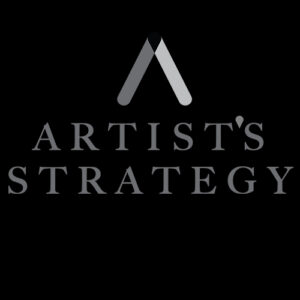
Suzie is a chef with her own small shop. Primarily she depends on large catering orders to keep her business afloat. So, a big order comes in…fantastic! But what happens when 6 months go by and she no one has placed an order since? Should she close up shop until her next big order comes in? That’s risky and probably impossible. Should she continue to operate at a loss while she wishes and hopes for a phone call? If she does, Suzie should do something else. What do actors do between jobs?
Most actors bemoan the time “off” in between jobs. We tend to wrap our feelings of validation into whether or not we have an acting gig. That’s because most actors believe they are completely powerless in their own careers. Their business “plan” usually includes get representation, reps get them auditions, book sometimes, and wait for more auditions.
We’ve worked with actors who have graduated from the best acting schools in the world, and yet they believe their “job” starts and ends with their audition or with rehearsal or a performance. What if Suzie, an entrepreneur with her own shop in an oversaturated catering market, thought her job started and ended with each individual catering gig? She would be capital F “in trouble”.
Artist’s Strategy’s first core belief is that actors are entrepreneurs by default. They are small businesses in a market that does not need them and therefore, it is their responsibility to manage their own careers and take the comprehensive action needed to generate work for themselves.
So, what should actors do in between jobs? Well, this is a trick question because there is no such thing as “in-between jobs” for an actor.
The actor’s business model, even for the highly successful, is to be constantly unemployed. You get a gig, the gig ends. You get another gig, that gig ends. This is an incredibly unstable business with a lack of structure. Therefore an actor’s job is to always be working on their careers, creating unique opportunities for themselves by using a business plan.
Anytime they are not employed on an “acting gig” is a wonderful opportunity to focus and continue to grow their business in a smart, specific way.
Inversely, when we’re in the middle an acting gig, we are so busy trying to fit in the gym, make food for the day or juggle personal relationships on top of that gig that the idea of building a marketing plan, managing a budget or staying on top of our networking to do’s is the *last* thing we want to focus on.
In fact, we tell ourselves these things are distractors from our true passion and, as a result, push our business aside altogether.
However, as said before, – we’re in the business of losing our jobs. In other words that creative gig you are on will eventually end! Without productive use of the in-between time, you will be forever stuck in a cycle of never growing your business and feeling “good” or “bad” depending on if someone else has given you an opportunity.
So if you might be a creative who lets your gig takeover and lets “jobless” time go to waste, your in-between action items could include:
1 – Cleaning up and finding clarity in your plan! This includes identifying your primary goals and mapping out steps for your community cultivation, financial management, marketing, self producing, product improvement and overall structure / organization.
2 – Identify ways you can expand your efforts while in-between projects. Use your plan as a guidepost to what you can intensify.
3 – Create a margin of error in your calendar so that as other gigs come up amidst your day to day work, your business doesn’t fall apart. This means cultivating good time management skills and the leaving cushions of time to play catch up if necessary.
In the meantime, embrace how empowered you can be with your “off” time and think of today and every day as an opportunity to create another milestone for your career. Don’t end up like Suzie!
What Should Actors Do Everyday?


Artist's Strategy offers artists the opportunity to strategize and create tactical next steps towards a successful, fulfilling career. Based on tested business principles, Artist's Strategy helps you design a tangible path towards a sustainable future. Incorporating and using the basic tenets of a healthy business, we will help you set a one, three or five-year-plan that will work for you and keep you on track to seeing real results. With Artist's Strategy, you will work alongside founder Joshua Morgan to identify the strengths and opportunities of your business and learn more about how to stabilize and grow. How long and how frequently you work with Artist's Strategy depends on your individual needs and resources. Contact us to discuss a plan that could work for you.
Read Full Profile© 2021 TheatreArtLife. All rights reserved.

Thank you so much for reading, but you have now reached your free article limit for this month.
Our contributors are currently writing more articles for you to enjoy.
To keep reading, all you have to do is become a subscriber and then you can read unlimited articles anytime.
Your investment will help us continue to ignite connections across the globe in live entertainment and build this community for industry professionals.